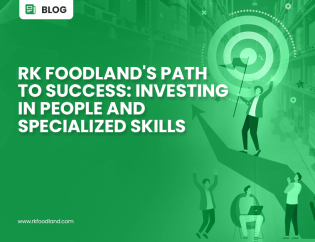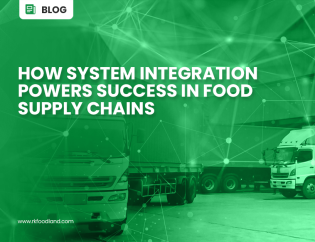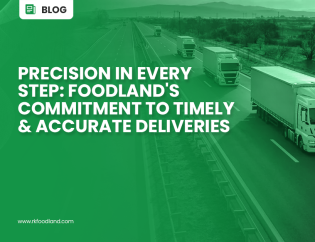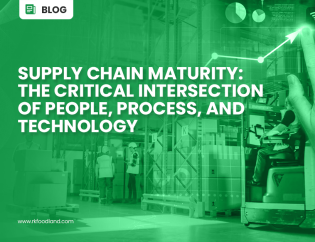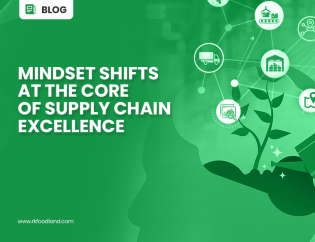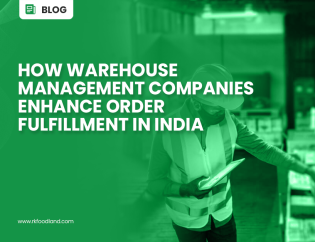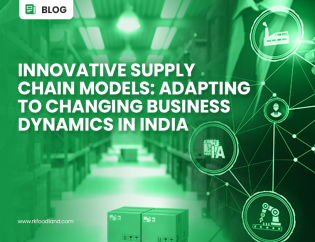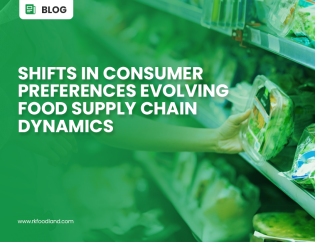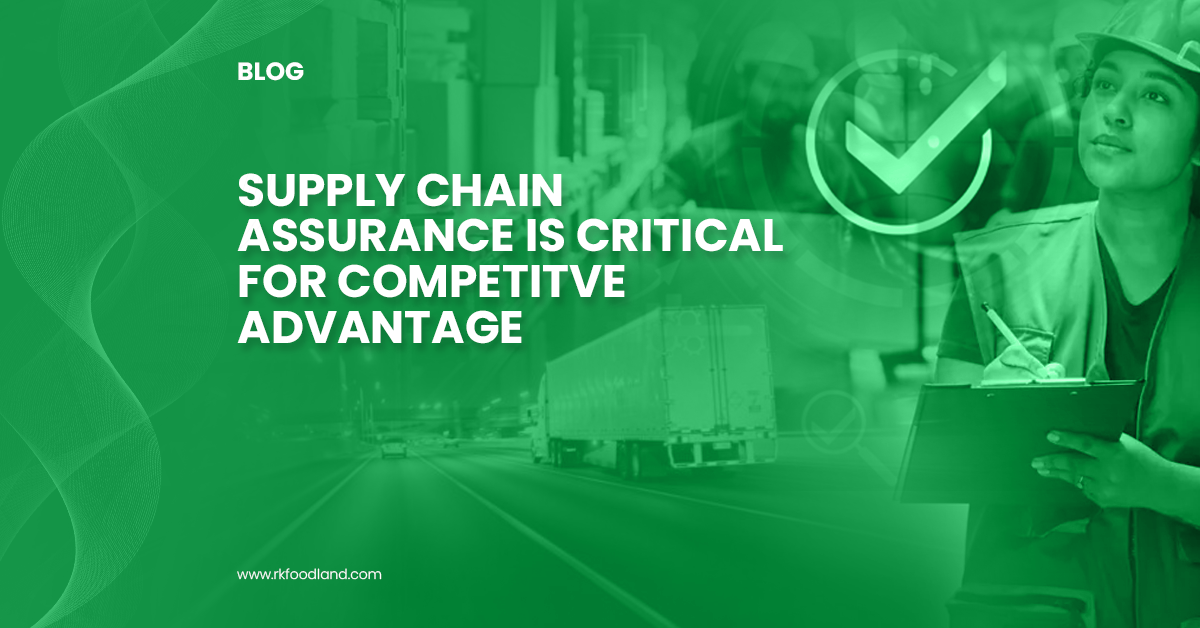
[Avg. Read Time < 4 mins.]
In today’s rapidly evolving market, consumer demand is dynamic and constantly changing. Food businesses are operating in a BANI (Brittle, Anxious, Non-linear, and Incomprehensive) environment, where they face intense competition, stringent regulatory laws, and highly aware consumers. To meet these challenges and maintain a competitive advantage, businesses must focus on ensuring the integrity and efficiency of their supply chains. Supply chain assurance not only helps businesses meet the high standards set by consumers and regulators, but also enables them to stay ahead of the curve by identifying and mitigating risks, improving operational efficiency, and building long-term customer loyalty. In a market where success is dependent on a business’s ability to adapt and respond to changing conditions, supply chain assurance is critical for competitive advantage.
Navigating Challenges of Seasonality and Demand Fluctuations:
The market has become increasingly dynamic, characterized by constantly shifting consumer demand, ever-evolving business models and technologies, and, in many cases, volatile pricing patterns. This can create significant challenges for food businesses as they strive to remain competitive amidst varying customer needs. As a result, businesses must adapt responsiveness in order to stay ahead of the competition and capitalize on opportunities. This requires having a sharp focus on understanding customer needs, responding quickly to trends and seasonality shifts, and optimizing supply chains so that they are able to anticipate changes in demand and adjust accordingly. In today’s market environment, customers have come to expect a certain level of service from food businesses – ranging from same-day or next-day delivery times to personalized offers tailored specifically for them – as well as increased transparency around their ordering process. This has put pressure on food businesses to improve their supply chain operations in order to meet these expectations while remaining profitable. Additionally, businesses must be able to quickly adjust their distribution networks based on changes in product availability or logistical disruptions such as shipping delays or unexpected product recalls.
Prioritizing Quality, Health & Safety through Assurance:
In an effort to ensure high quality products and services that meet customer expectations as well as regulatory standards, food businesses must prioritize supply chain assurance measures. Supply chain assurance provides comprehensive oversight into every aspect of a business’s operations from production processes all the way through integrated planning & fulfilment– helping them achieve complete visibility into their entire supply chain network. Supply chain assurance helps businesses effectively manage risks associated with product safety by monitoring for quality control issues such as recalls or contamination incidents; ensuring health requirements such as validating ingredients or nutritional labels; and minimizing brand damage through product traceability measures like counterfeit detection systems. By leveraging supply chain assurance across the entire supply chain network, food businesses are able to ensure consistent quality standards while also mitigating potential liabilities associated with operational errors or defective products – ultimately leading to improved consumer confidence levels which can lead directly back into increased sales opportunities. Additionally, supply chain assurance help businesses achieve compliance with stringent regulations related food safety (such as FSMA, HACCP and more) by providing greater insight into day-to-day activities across production processes – allowing for more efficient corrective action when needed.
Achieving Sustainable Growth Through Assurance:
For businesses looking for long term success within the highly competitive marketplace, it is essential that they have an effective strategy for continual improvement initiatives embedded within their supply chains. Supply chain assurance plays an integral role in helping monitor performance against these goals ensuring continual progress is made towards achieving these strategic objectives, ultimately leading towards sustainable success within the business domain. By leveraging supply chain assurance capabilities combined with best practice recommendations & benchmarking metrics against industry peers it is now easier than ever before for organizations both small & large alike to push forward towards achieving excellence, positioning them firmly ahead of their competitors & granting them ultimate competitive edge in today’s dynamic market landscape.
Thus, ensuring supply chain assurance is critical for food businesses looking to stay ahead in today’s evolving market. With the help of a trusted and efficient supply chain partner, food businesses can improve their supply chain processes and gain valuable insights into the market. By having a strong and reliable supply chain, food businesses can reduce risks, meet strict quality and food safety standards, and improve operational efficiency, helping businesses focus more on their core competence. The right supply chain partnership can provide a competitive advantage and drive success for food businesses, making it a necessary aspect of a successful food ecosystem.
We at RK Foodland recognize the importance of a supply chain assurance in driving positive transformations for a better future. We believe that supply chain partnerships play a crucial role in achieving these outcomes. We are committed to co-creating a future-ready value chain and would like to discuss this further with you.
Let’s work together to drive positive change in the supply chain ecosystem.
Related Content | Foodland’s Resources
Link 1: The Importance of Food Safety Within the Supply Chain
Link 2: Gaining Customer Loyalty Through Transparency
